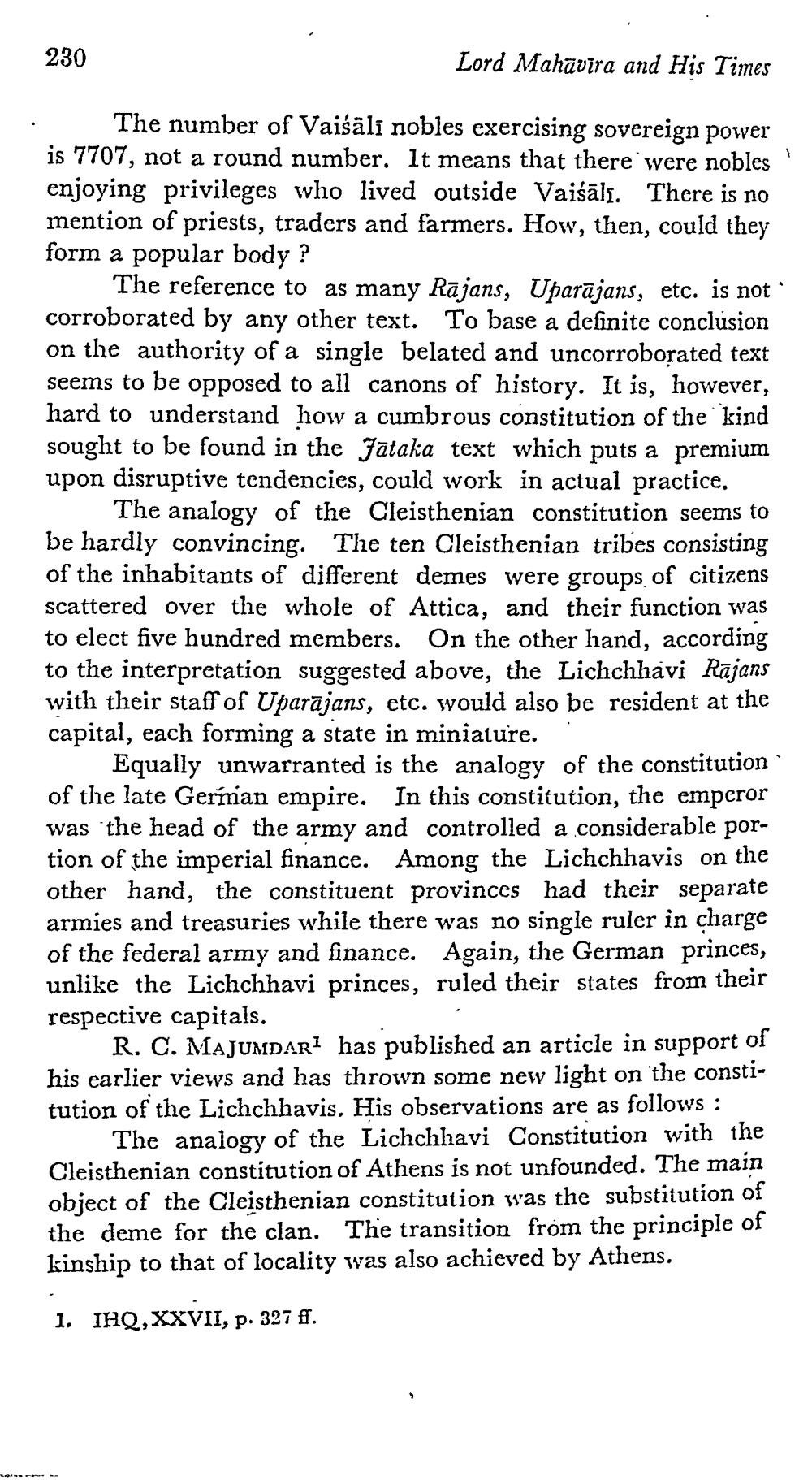________________
230
Lord Mahāvīra and His Times · The number of Vaiśālī nobles exercising sovereign power
is 7707, not a round number. It means that there were nobles enjoying privileges who lived outside Vaiśāls. There is no mention of priests, traders and farmers. How, then, could they form a popular body ?
The reference to as many Rājans, Uparājans, etc. is not corroborated by any other text. To base a definite conclusion on the authority of a single belated and uncorroborated text seems to be opposed to all canons of history. It is, however, hard to understand how a cumbrous constitution of the kind sought to be found in the Jataka text which puts a premium upon disruptive tendencies, could work in actual practice.
The analogy of the Cleisthenian constitution seems to be hardly convincing. The ten Cleisthenian tribes consisting of the inhabitants of different demes were groups of citizens scattered over the whole of Attica, and their function was to elect five hundred members. On the other hand, according to the interpretation suggested above, the Lichchhavi Rājans with their staff of Uparājans, etc. would also be resident at the capital, each forming a state in miniature..
Equally unwarranted is the analogy of the constitution of the late German empire. In this constitution, the emperor was the head of the army and controlled a considerable portion of the imperial finance. Among the Lichchhavis on the other hand, the constituent provinces had their separate armies and treasuries while there was no single ruler in charge of the federal army and finance. Again, the German princes, unlike the Lichchhavi princes, ruled their states from their respective capitals.
R. C. MAJUMDAR' has published an article in support of his earlier views and has thrown some new light on the constitution of the Lichchhavis. His observations are as follows :
The analogy of the Lichchhavi Constitution with the Cleisthenian constitution of Athens is not unfounded. The main object of the Cleisthenian constitution was the substitution of the deme for the clan. The transition from the principle of kinship to that of locality was also achieved by Athens.
1. IHQ, XXVII, p. 327 ff.




